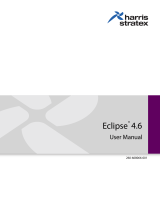4
Professional Development Activities (PDA) Categories
Professional Development Activities (PDA) are defined as Board-approved learning activities
undertaken for the purpose of continuing professional development. PDH may be earned in
one or more of the PDA categories. PDA chosen should maintain or enhance competence as a
licensed psychologist, and they must be relevant to the documented Learning Plan.
Documentation of completed activities must be retained for at least five (5) years.
A quick reference for all PDA may be found at
dpo.colorado.gov/Psychology/CPD.
Coursework
Attend workshops, seminars, symposia, colloquia, invited speaker sessions, postdoctoral
institutes, or scientific or professional programs offered at meetings of local, state, regional,
national, or international professional or scientific organizations.
• With the exception of five (5) PDH, activities must qualify as continuing education units
or continuing medical education credit as approved and/or accredited by the American
Psychological Association, state medical association, Accreditation Council for
Continuing Medical Education, or by a regionally accredited institution of higher
education.
• Coursework activities may be completed in-person or online.
• One (1) continuing education hour is equivalent to one (1) PDH.
Documentation Required:
Documentation of learning activities shall include a transcript or certificate of attendance
with a statement of the credits earned, which includes the name of the participant, the
date(s) of attendance, the name of provider(s), the number of hours earned, etc.
Ethics
Complete an ethics course offered by the American Psychological Association, state medical
association, Accreditation Council for Continuing Medical Education, or a regionally
accredited institution of higher education.
• One (1) continuing education hour is equivalent to one (1) PDH.
Documentation Required:
Documentation of completion of an ethics course shall include a transcript or certificate of
attendance with a statement of the credits earned, which includes the name of the
participant, the date(s) of attendance, the name of the provider(s), the number of hours
earned, etc.














